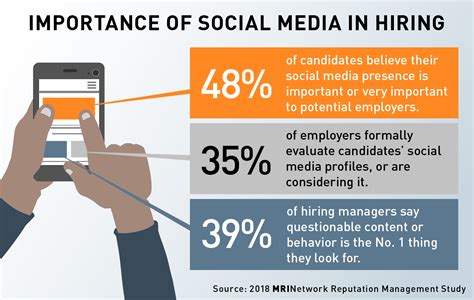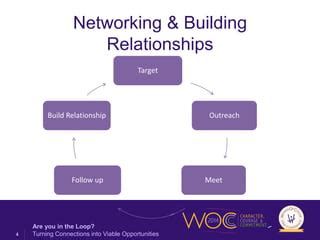In today’s fast-paced job market, standing out to potential employers requires more than a polished resume and a firm handshake. With the constant evolution of the digital landscape and the increasing importance of social connections, mastering the art of networking has become crucial for career progression. In this comprehensive guide, we will delve into various strategies to bolster your networking skills both online and offline, harness the power of social media to foster career growth, and navigate job fairs and networking events with ease. Additionally, we will provide you with actionable tips on how to transform those valuable connections into concrete career opportunities. Whether you’re a recent graduate or a seasoned professional seeking new challenges, this blog post is your roadmap to unlocking the doors of your future job success.Unlock career growth with our expert networking strategies for online and offline. Leverage social media, navigate job fairs, and convert connections into opportunities.
Mastering Networking Strategies Online and Offline

In today’s competitive job market, it’s imperative to harness the power of both online and offline mediums for widening your career prospects; hence, understanding career networking strategies for job seekers is crucial. In an era where who you know is as important as what you know, effective networking tips for job hunting success can make a significant difference. Online platforms like LinkedIn, as well as in-person meetups, provide fertile ground to cultivate relationships that may lead to potential job opportunities. By actively engaging in conversations, sharing industry-related knowledge, and showcasing your skills, you’re laying the groundwork for career advancement through networking and job search strategies.
Apart from growing your professional network, it’s also essential to know how to build professional connections for job opportunities that align with your career goals. Leveraging both online and offline networking avenues, from social media interactions to face-to-face industry conferences, embodies the modern approach to carving out a successful career path. It’s about deploying proven networking techniques to land your dream job, which often involves being visible, persistent, and genuine in your interactions. Remember that career networking tips are not just about collecting business cards or friend requests; it’s about nurturing relationships that may eventually lead to fruitful collaborations and, ultimately, achieving career milestones through networking for job seekers.
Utilizing Social Media for Career Growth

In the digital age, harnessing the power of social media is a quintessential strategy for those keen on career advancement; indeed, adeptly navigating platforms like LinkedIn, Twitter, and even Instagram can dramatically bolster one’s chances of encountering golden job opportunities. By strategically curating a professional online presence, job seekers can leverage career networking strategies that open doors to new connections, thought leaders in their industry, and even potential employers who are scouting for talent on these networks. Embracing the nuances of social media not only helps in building a wide professional network but also positions candidates front and center where opportunities can find them.
Foremost among effective networking tips for job hunting success is the active engagement with relevant industry content on these platforms, which may entail contributing thoughtful commentary, sharing insightful articles, or publishing original content that showcases one’s expertise. Implementing such job search networking techniques can yield considerable dividends, particularly when individuals attend to the cultivation of meaningful professional relationships rather than merely amassing a high quantity of connections. Ultimately, recognizing the symbiosis between social media and career growth is an astute move for any savvy professional eyeing the next rung on their career ladder, proving that career advancement through networking and job search strategies is a nuanced art that, when mastered, can contribute significantly to one’s professional trajectory.
Navigating Job Fairs and Networking Events

When attending job fairs and networking events, it’s paramount to utilize career networking strategies for job seekers to maximize chances for job hunting success. Such events provide an ideal platform for making meaningful connections, as they present unique opportunities to meet a diverse group of professionals and potential employers. As one circulates among the various booths and discussions, implementing effective networking tips for job hunting success becomes a critical component of the experience; it is not merely about collecting business cards, but about forging relationships that can lead to fruitful job opportunities and career advancement.
One of the essential job search networking techniques is the ability to communicate one’s value proposition clearly and concisely to potential employers or connections. This means preparing an elevator pitch that highlights key skills and achievements, aligned with understanding and addressing the needs of people you connect with. Additionally, it’s effective to engage in genuine conversations to establish rapport; asking insightful questions and showing a sincere interest can often lay the groundwork for a professional relationship that extends far beyond the event. Thus, networking for job seekers is not just about finding immediate job openings, but also about laying the foundation for career advancement strategies that can be cultivated well into the future. By engaging in strategic networking, one may well find that the path to landing your dream job is paved through the connections made at these pivotal networking junctures.
Turning Connections into Career Opportunities

For job seekers striving to advance their careers, learning how to adeptly turn connections into career opportunities is an invaluable skill that can set you apart in a competitive job market. By harnessing effective networking tips for job hunting success, individuals can maximize the potential of their professional network, thereby opening doors to new possibilities and ventures. It’s crucial to recognize the power of establishing meaningful relationships with industry professionals, as these connections can often lead to referrals, recommendations, and inside information on upcoming job openings.
Whether you’re engaging with potential employers online or in person, integrating proven networking techniques to land your dream job into your strategy could be a key factor in achieving your career objectives. This involves not only reaching out and connecting with peers but also nurturing those relationships with regular and meaningful interactions. And when it comes to career advancement through networking and job search strategies, it’s important to be proactive, follow up with new contacts, and articulate your career goals clearly. Developing a robust network is a dynamic and ongoing process, pivotal for those committed to exploring and securing the best job opportunities within their field.
Frequently Asked Questions
What are some effective networking strategies for job seekers?
Effective networking strategies include attending industry events, joining professional associations, engaging on social media platforms like LinkedIn, reaching out to alumni from your institution, and setting up informational interviews with professionals in your field. Always be ready to clearly articulate your value proposition and how you can contribute to potential employers or connections.
How important is personal branding in a job search?
Personal branding is crucial as it helps you stand out from other candidates by showcasing your unique skills, experiences, and personality. It informs potential employers about who you are, what you stand for, and what you can bring to their company. Building a strong, consistent personal brand through your resume, online presence, and professional demeanor can be a significant advantage in your job search.
What role do social media platforms play in getting a job?
Social media platforms play a major role by allowing job seekers to establish a professional online presence, network with peers and industry leaders, join relevant groups, and learn about job opportunities. Platforms like LinkedIn can be especially valuable for making connections, showcasing your professional achievements, and researching companies.
Why are informational interviews important, and how do you conduct one?
Informational interviews are important for gaining insights into a particular industry or company, building relationships with professionals, and learning about potential job opportunities. To conduct one, start by identifying individuals whose career paths align with your interests, then reach out politely to request a brief meeting. Prepare thoughtful questions, listen actively, and follow up with a thank you note to show appreciation for their time and advice.
What are some tips for creating a compelling resume?
To create a compelling resume, focus on clear and concise language, tailor your resume to the specific job position, highlight quantifiable achievements, and use industry-relevant keywords. Make sure the layout is professional and easy to read, with no typos or grammatical errors. It’s also beneficial to have someone else review your resume before submitting it to potential employers.
How can one prepare for a job interview to make a lasting impression?
To prepare for a job interview, research the company thoroughly, understand the job description, and align your qualifications with the company’s needs. Practice common interview questions, prepare questions to ask the interviewer, dress professionally, and arrive on time. During the interview, be confident, articulate, and engaging, and send a personalized thank you note afterward to reiterate your interest in the position.
Can volunteering or internships lead to employment opportunities?
Absolutely, volunteering and internships can lead to employment opportunities by providing hands-on experience, helping you build a professional network, and often resulting in a direct path to a full-time job offer. These experiences also demonstrate to employers your commitment to the profession and can make your resume stand out with practical experience in your field of interest.








